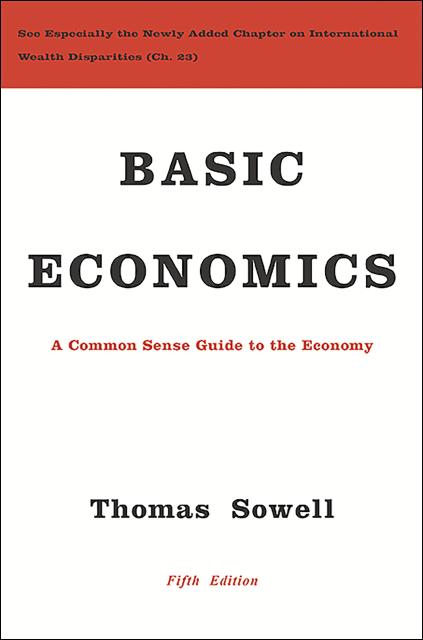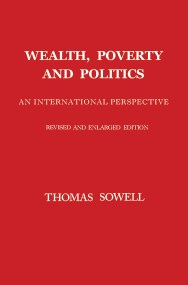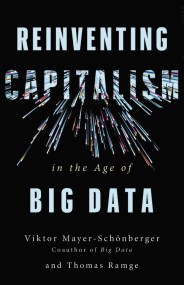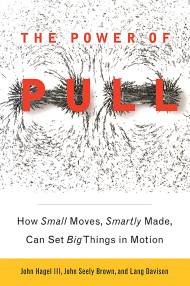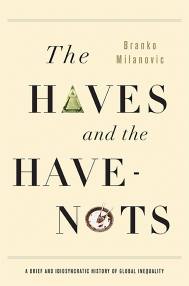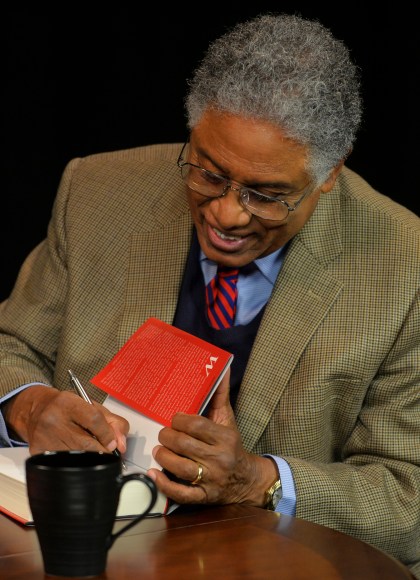By clicking “Accept,” you agree to the use of cookies and similar technologies on your device as set forth in our Cookie Policy and our Privacy Policy. Please note that certain cookies are essential for this website to function properly and do not require user consent to be deployed.
Basic Economics
A Common Sense Guide to the Economy
Contributors
Formats and Prices
- On Sale
- Dec 2, 2014
- Page Count
- 704 pages
- Publisher
- Basic Books
- ISBN-13
- 9780465060733
Price
$45.00Price
$57.00 CADFormat
Format:
- Hardcover (Revised) $45.00 $57.00 CAD
- ebook $25.99 $33.99 CAD
This item is a preorder. Your payment method will be charged immediately, and the product is expected to ship on or around December 2, 2014. This date is subject to change due to shipping delays beyond our control.
Buy from Other Retailers:
“Thomas Sowell is the nation’s greatest living economist.” —American Spectator
Basic Economics is a citizen’s guide to economics, written for those who want to understand how the economy works but have no interest in jargon or equations. Bestselling economist Thomas Sowell explains the general principles underlying different economic systems: capitalist, socialist, feudal, and so on. In readable language, he shows how to critique economic policies in terms of the incentives they create, rather than the goals they proclaim. With clear explanations of the entire field, from rent control and the rise and fall of businesses to the international balance of payments, this is the first book for anyone who wishes to understand how the economy functions.
Drawing on lively examples from around the world and from centuries of history, Sowell explains basic economic principles for the general public in plain English.
-
“Clear and concise…Among economists of the past thirty years, Thomas Sowell stands very proud indeed.”Wall Street Journal
-
“Basic Economics is not only valuable for a general lay-person audience; it would also benefit lawyers, politicians, and yes, economists as well.”Washington Times
-
“Badly needed...Anyone who hasn’t studied economics formally should read Basic Economics to learn it in a logical, straightforward way. Anyone who has been subjected to biased and dreary economics textbooks should read Basic Economics as a bracing corrective.”Claremont Review of Books
-
“Sowell’s volume does a fantastic job in cultivating the reader’s ‘economic imagination’…Sowell does a masterful job in helping to fill in the process of economic adjustment that blackboard equilibrium analysis often leaves out.”Choice
-
“Sowell takes the reader on an exhilarating tour of the fundamentals of microeconomics, macroeconomics, financial markets, and international trade....Wisdom, erudition, and an underlying rigor permeate every page; this is sophisticated economics, even though the material is presented in plain, everyday English.”Cato Journal
-
“An excellent gift for someone who is interested in learning more about economics without working through the economic jargon, graphs, charts, and equations usually found in textbooks.”Business Economics
-
“Basic Economics is also one of the most—if not the most—lucid, comprehensive, and eminently readable overviews of economics fundamentals you are ever likely to encounter.”Redstate
-
“A valuable book…Basic Economics is a comprehensive, yet understandable explanation of how economics works…Sowell presents economics in prose that is easily understood and engaging to read…Basic Economics is one of those books anyone wishing to be an informed citizen should read—and it is interesting enough to make enjoyable reading.”Daily News, Galveston County, Texas
-
“Thomas Sowell's classic provides an engaging—and at times entertaining—crash course through economics and its application to public policy and personal finance…Sowell helps readers understand how economics applies to everyday life. It isn’t about revenue, profits, stocks and bonds, as much as it is about making choices…His language is eloquent, as well as accessible…Basic Economics is a useful guide for someone who wants to know more about how the business world operates and also how to interpret public policy proposals.”Deseret Morning News
-
“Basic Economics covers the whole range of economic concerns…It eliminates the usual graphs and equations, presenting readable text instead that any reader might find convincing.”Book News, Inc.
-
“Basic Economics reveals in every chapter why Thomas Sowell is one of America’s greatest thinkers. It is must-reading for anyone who wants the truth about how the laws of economics govern so many of the events in our daily lives.”Arthur C. Brooks, author of Build the Life You Want
-
“The unyielding truths of economics befuddle social engineers of all stripes. Thomas Sowell, in exemplary fashion, strips the mystery from those truths, making them intuitive—even obvious.”David Boaz, author of The Libertarian Mind
-
“Basic Economics is a healthy main course disguised as a rich dessert…Thomas Sowell’s smooth writing, irresistible logic, deep knowledge, and flawless economics make each page an explanatory treat to experts and novices alike.”Thomas Hazlett, Clemson University
-
“Basic Economics demonstrates Thomas Sowell’s ability to make economics understandable to a person who hasn’t set foot in an economics class. It’s a book rich with explanations and examples of everyday economics issues.”Walter E. Williams, George Mason University
